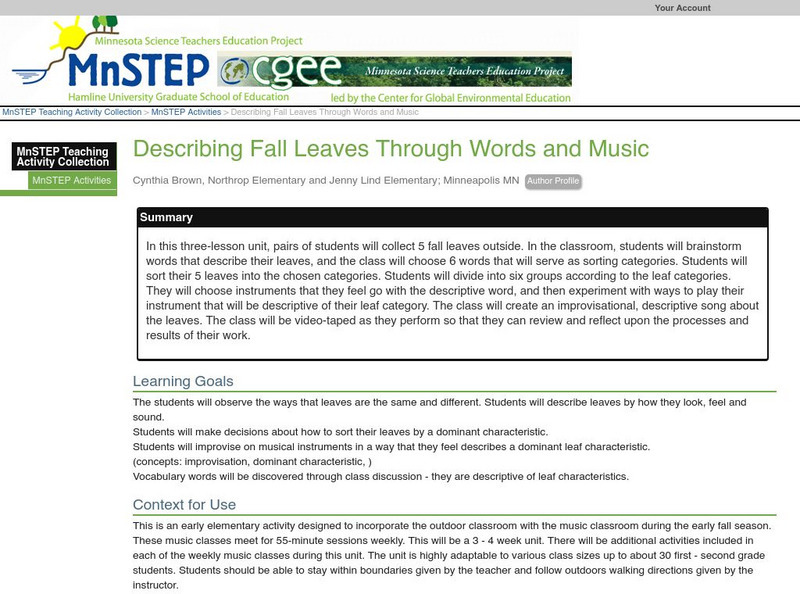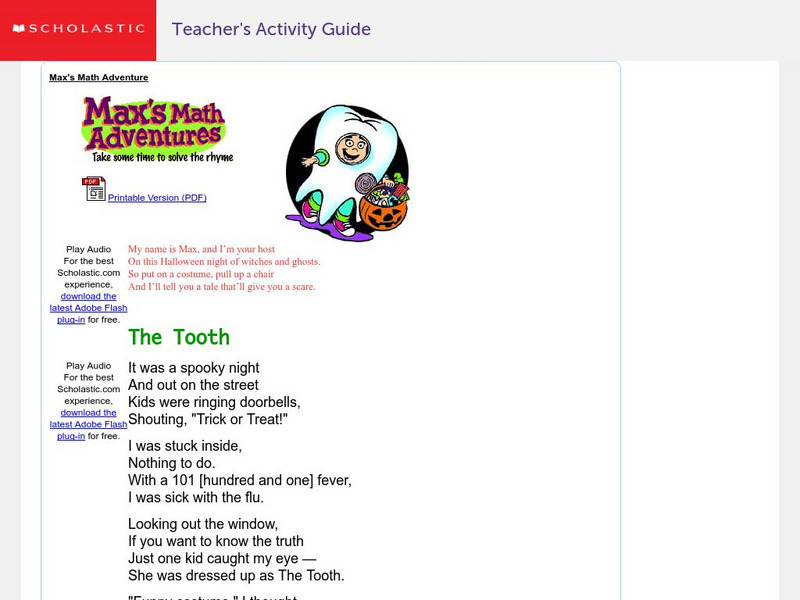Hi, what do you want to do?
TED Talks
Ted: Ted Ed: How Did Clouds Get Their Names?
Richard Hamblyn tells the history of Luke Howard, the man who classified the clouds and forever changed humanity's understanding of these changeable, mysterious objects. [5:07]
McGraw Hill
Glencoe: Self Check Quizzes 1 Two Dimensional Figures Polygons
Use Glencoe's randomly generated self-checking quiz to test your knowledge of two-dimensional figure-polygons. Each question has a "Hint" link to help. Choose the correct answer for each problem. At the bottom of the page click the...
Science Education Resource Center at Carleton College
Serc: Describing Fall Leaves Through Words and Music
Students collect, describe, and sort leaves found outside. As a cross-curricular component, they will improvise on musical instruments in a way that they feel describes a dominant leaf characteristic.
University of Regina (Canada)
University of Regina: Math Central: Lesson: Mr. Z's 5 Minute Game of Geometric Pandemonium
Students make a series of geometric drawings of points, obtuse angles, rays, polygons, and the like. Each child is given one but not allowed to show anyone else. The drawing is then taped to the back of the child in front of them. The...
Scholastic
Scholastic: Max's Math Adventures: The Tooth
Read this spooky rhyme and then use the activity page to create patterns with Halloween candy. The teacher's guide and extra challenges will help teachers make fun and interesting lesson plans.









